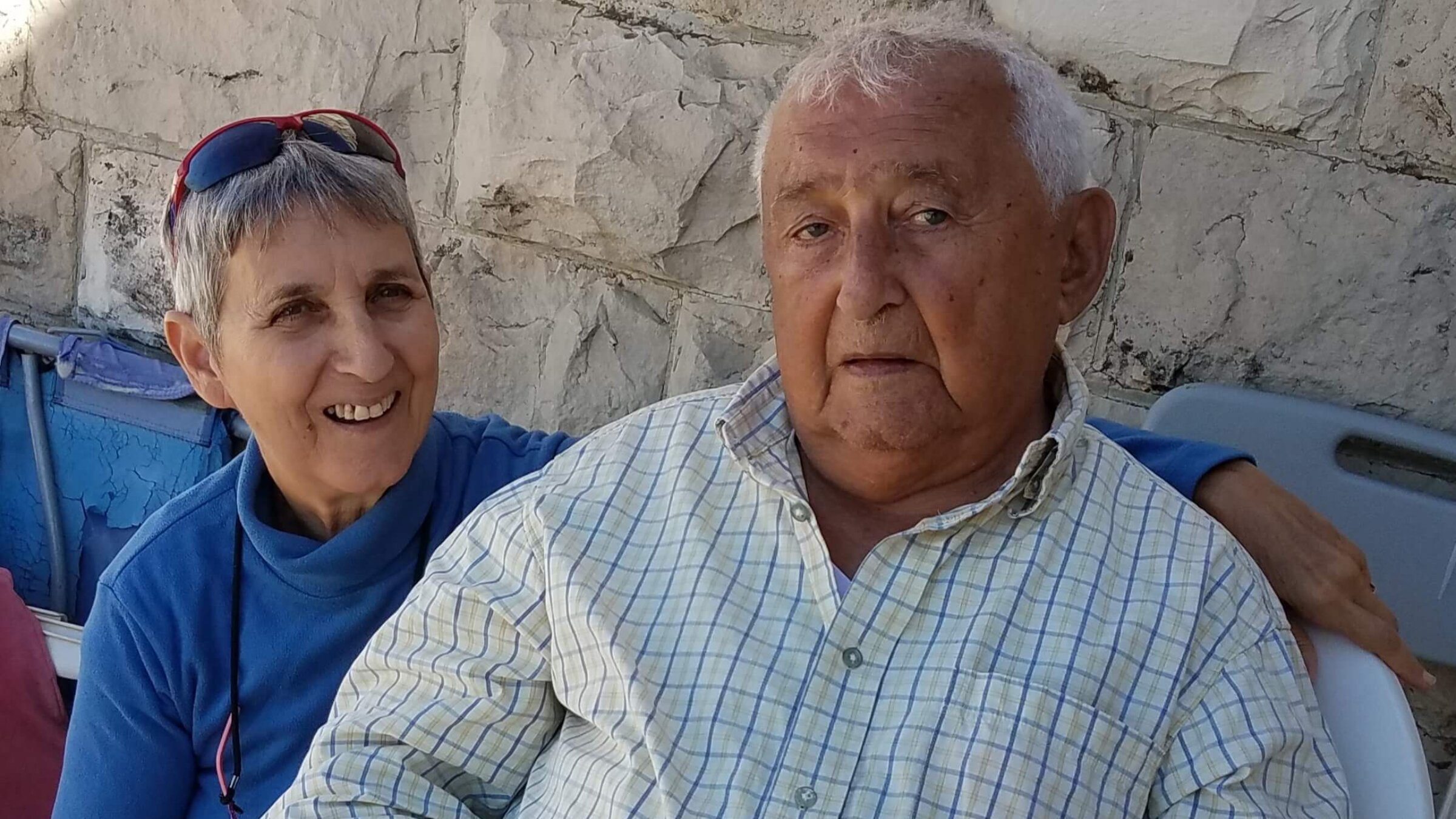In his last days, my father asked for Yiddish music
Part of a Forverts series devoted to Father’s Day

Eva Rockman (left) with her father, Moniek (Moshe) Shaibe, one year before he died, in Jerusalem Photo by Shana Zaslow
My father, Mac (also called Moniek or Moshe) Shaibe was born in Lodz in 1922. He spoke Yiddish to his mother but he studied in a Hebrew day school and spoke Polish with the Poles.
My mother, who was a Bundist and spoke a beautiful Yiddish, often made fun of my father’s Yiddish. She claimed that he spoke it poorly, not always grammatically correct. Dad didn’t seem to mind her criticism. He was an easy-going guy who knew how to laugh at himself.
In 1970, my parents and three younger siblings moved to Jerusalem. (My older sister Gina arrived in 1968, I – in 1978). From that point on, Dad spoke mostly Hebrew in an Ashkenazi accent and some English but very little Yiddish. He spoke it only to his mother and his wife.
But at the very end of his life my father seemed to want to hear Yiddish again. He was suffering from a type of eczema which made his whole skin itch and burn and had sciatic pain. When he was so uncomfortable in his own skin, I was desperate to find some way to bring him peace. I suddenly had an inspiration to look for Yiddish songs on YouYube and found Chava Alberstein singing the Partisan Hymn and other Yiddish songs. When I would start playing her songs on the CD player, Dad would visibly relax, a smile would cover his face and he would fall asleep.
Soon, he began to say: “Let’s hear some Chava Alberstein,” and I knew he meant her Yiddish songs. I bless Chava and the Yiddish language for the peace of mind it gave him in his last days.
A photo of our Dad, one year before he died, in Jerusalem. The photo was taken by my dear friend Shana Zaslow on her first visit to Israel in October 2018
A message from our CEO & publisher Rachel Fishman Feddersen
I hope you appreciated this article. Before you go, I’d like to ask you to please support the Forward’s award-winning, nonprofit journalism during this critical time.
At a time when other newsrooms are closing or cutting back, the Forward has removed its paywall and invested additional resources to report on the ground from Israel and around the U.S. on the impact of the war, rising antisemitism and polarized discourse.
Readers like you make it all possible. Support our work by becoming a Forward Member and connect with our journalism and your community.
— Rachel Fishman Feddersen, Publisher and CEO